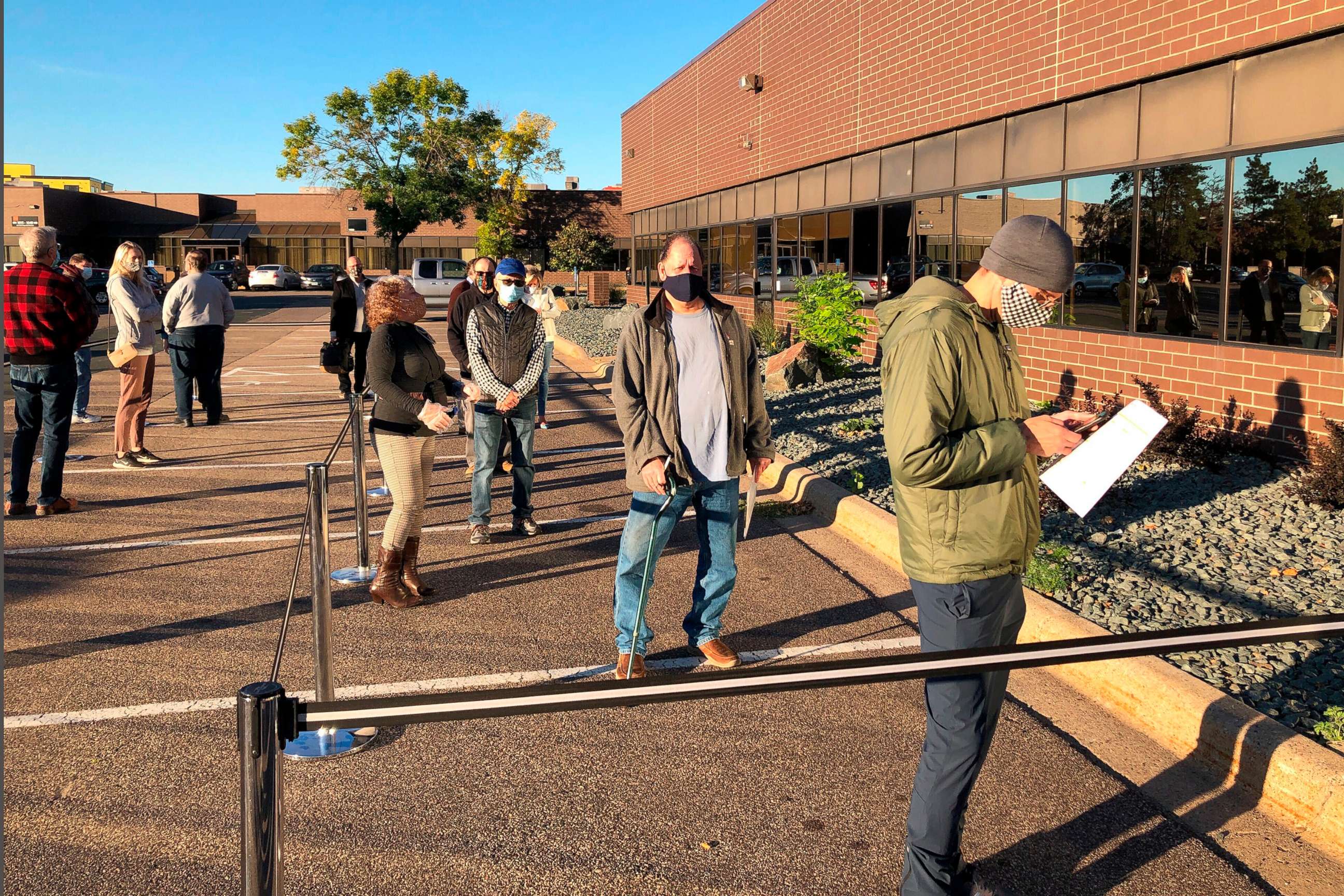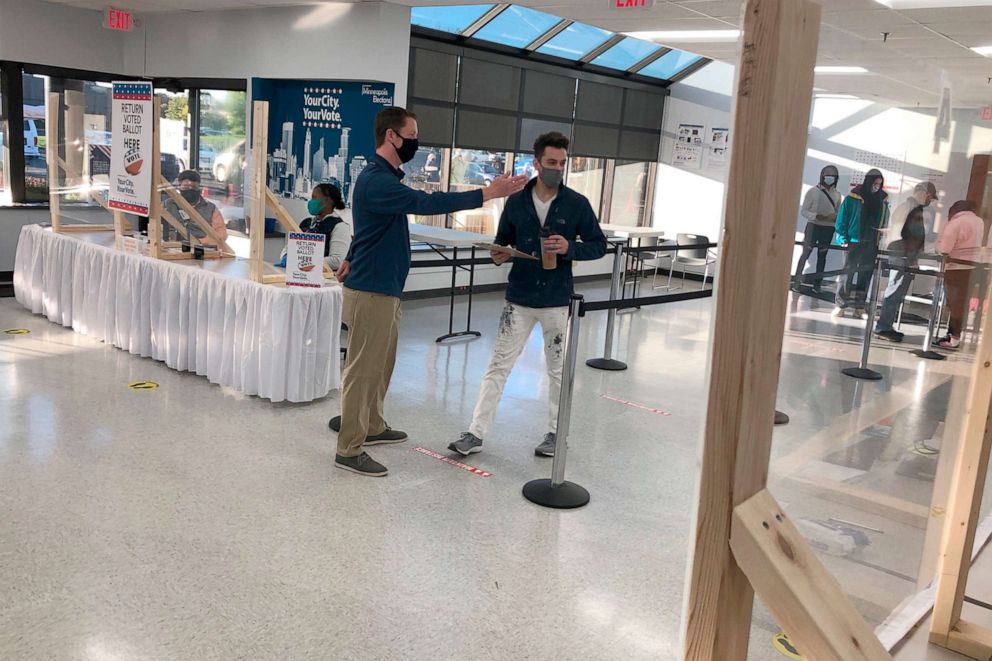Minnesota sees 'absolute shattering' of record for absentee ballot requests
More than 1 million absentee ballots have been requested in the state.
Minnesota Secretary of State Steve Simon told ABC News' Linsey Davis on Friday that the North Star State has seen "an absolute shattering of the record for people requesting an absentee ballot." Simon added, "It's off the charts."
Although in-person voting is still an option for all voters, the pandemic has pushed many to vote from home.
As of Friday, 1,070,486 voters have requested absentee ballots. By comparison, for the same period in 2018, approximately 58,000 were requested. 3,038 early in-person ballots were cast on Friday, which Simon's office believes may be a record. In 2016, there were 857 ballots accepted on the first day of early in-person voting.

And so far, Simon added, it's been glitch-free.
"Ballots for those who have already ordered them will go out in the mail today, and people can start sending them back or hand delivering them back whenever they choose," he said.
Simon said he has confidence in the postal service handling such a huge workload, even with delays reported elsewhere.
"That's not going to slow us down, and that's not going to stop Minnesotans who want to vote this way," he said.
Voting by mail can increase the number of ballots that are rejected. Reasons vary -- missing signatures, improperly filled-out ballots, damaged envelopes -- and there's significant concern that this year the problem could be exacerbated in pivotal swing states.
Simon said he expects lower rejection rates.
"The reason for that is that, historically, in Minnesota, the No. 1 reason for rejection of a ballot is failure to do the witness requirement properly," he said. However, this year, because of the pandemic, to make it easier for voters to cast ballots by mail, Minnesota agreed to suspend witness requirements from mail-in voting, and without those "there's nothing for anyone to get wrong. So that No. 1 reason is now off the table."

Another concern with absentee ballots is people not submitting them on time -- usually by 8 p.m. on election night. This year, because of a court order, that's been extended to a week after Election Day.
"I'm actually more optimistic than I normally would be this year, in a weird way because of COVID-19," Simon said.
President Donald Trump has repeatedly criticized absentee voting, claiming without any evidence that mail-in-ballots carry a higher risk of fraud.
There were no credible cases of voter fraud among the 700,000 Minnesotans who voted via absentee ballot in 2016, according to Simon, who said it's "unfortunate to hear that kind of disinformation and misinformation."
Safeguards have been put in place in Minnesota to ensure against fraud. Personal identifying information is requested when the ballot is ordered, and it has to be returned with that same information.
"Going back to the last couple of decades," Simon said, "I've asked folks in the know, 'Do you know of a single case, even one, where someone has filled out a fake ballot or intercepted someone's ballot, and successfully voted? The answer is, 'No.' They don't know of a single case in Minnesota, in recent history. We have the security and we have the record to show that it's a safe and secure way to vote."
Unlike recent elections, American voters may have to wait a few days after Election Day to see who wins, especially in hotly contested states.
"I think in most contests, we will know the winner, if not on election night, very shortly thereafter, and that's because we'll be able to report not only all the ballots counted as of election night, but we'll also be able to say, for particular contests, how many outstanding absentee ballots there are," Simon said. "In most cases, you're going to be able to mathematically call those races and figure out who the winner is."
Simon did say, however, he's concerned about the week between Election Day and when the final ballots may arrive to be counted.
"That space could be filled with disinformation and misinformation from all sources, conspiracy theories, lies, things designed to undermine confidence in our election," not just in Minnesota but throughout the U.S., he said. "Let's just be calm, let's be patient. Let's counter lies with truth and facts, and talk about what's really going on, not what's in people's imaginations."




